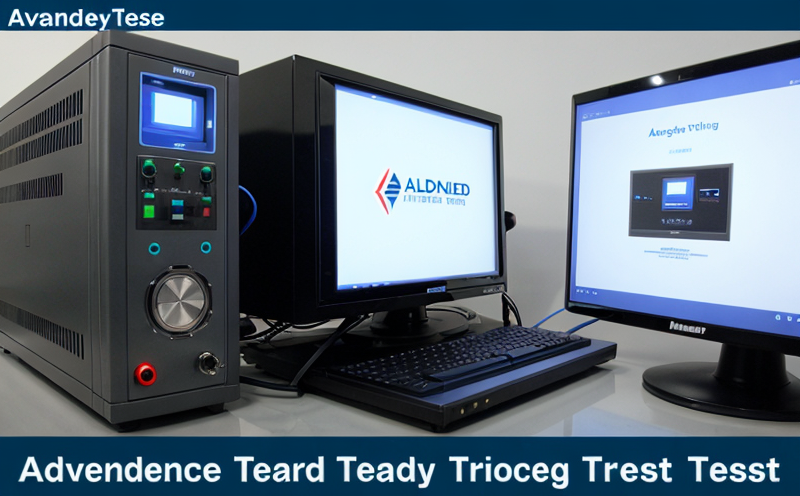ASTM F613 Semiconductor Surface Micro-Roughness Testing
The ASTM F613 standard specifies a method for quantifying the micro-roughness of semiconductor surfaces, which is critical in ensuring the reliability and performance of modern electronic devices. This test measures surface roughness at sub-micron scales using advanced profilometry techniques. The primary purpose is to assess the quality and consistency of semiconductor manufacturing processes by providing precise data on surface irregularities.
The precision of surface micro-roughness can significantly impact several key aspects of semiconductor performance, including electrical conductivity, adhesion strength, and the overall lifespan of devices. In this context, ASTM F613 ensures that surfaces meet stringent industry standards for reliability and quality. The test is particularly important in industries where even minor surface imperfections could lead to catastrophic failures or reduced device efficiency.
For accurate testing, specimens are prepared meticulously by cleaning them with appropriate solvents and drying thoroughly before measurement. Instruments used include atomic force microscopes (AFM) and scanning electron microscopy (SEM), which provide the necessary resolution for measuring micro-roughness at sub-micron levels. The process involves acquiring multiple points across the surface to generate an average roughness value, typically expressed in terms of root mean square (RMS).
ASTM F613 stipulates that testing should be performed under controlled environmental conditions to ensure consistency and repeatability. Specimens must also meet certain cleanliness criteria before testing begins. The results are then analyzed according to the specified tolerances, which can vary depending on the specific application or industry standard.
This method is widely used across various sectors within the semiconductor industry, including R&D, quality assurance, and manufacturing. By adhering strictly to ASTM F613 guidelines, laboratories like Eurolab ensure that test results are accurate, repeatable, and internationally recognized. This not only enhances product quality but also facilitates smoother supply chain processes and compliance with international standards.
- Atomic Force Microscopy (AFM): Provides high-resolution images of the surface topography necessary for precise measurements.
- Scanning Electron Microscopy (SEM): Offers detailed views of surface structures, aiding in comprehensive analysis.
- Controlled Environmental Conditions: Ensures uniformity and reliability across multiple test runs.
- Cleanliness Criteria: Prevents contamination that could skew measurement results.
The ASTM F613 method is crucial for maintaining high standards in semiconductor manufacturing, ensuring that every component meets the required specifications. This level of precision helps manufacturers identify and rectify issues early on, leading to improved product quality and customer satisfaction. It also plays a vital role in fostering trust between suppliers and customers by providing verifiable proof of compliance with international standards.
Eurolab Advantages
At Eurolab, we pride ourselves on delivering unparalleled expertise and reliability when it comes to ASTM F613 testing. Our team comprises highly experienced professionals who understand the nuances of semiconductor surface micro-roughness measurement. With state-of-the-art equipment and years of industry experience, we ensure that every test is conducted under optimal conditions.
Our commitment to accuracy extends beyond just performing the tests; it also includes providing comprehensive reports that explain the results in detail. These reports are invaluable tools for quality managers and R&D engineers as they help make informed decisions about process improvements or material selections. Furthermore, our adherence to international standards ensures that all test outcomes are universally accepted, simplifying global trade processes.
We take pride in offering flexible service options tailored to meet the unique needs of each client. Whether you require one-off tests or ongoing support for your production line, we have solutions designed specifically for your requirements. Our dedication to excellence means that no stone is left unturned when it comes to delivering accurate and reliable test results.
International Acceptance and Recognition
- The ASTM F613 standard has been widely adopted by leading semiconductor manufacturers around the world. Its adoption signifies a commitment to maintaining high-quality standards in surface micro-roughness measurement.
- Many countries have incorporated ASTM F613 into their national regulations, further emphasizing its global relevance and acceptance.
- The standard is recognized by major certification bodies such as ISO and IEC, adding credibility to the results obtained through this testing method.
Competitive Advantage and Market Impact
By leveraging ASTM F613 semiconductor surface micro-roughness testing, organizations gain a significant competitive edge in their respective markets. Consistent adherence to this standard demonstrates a commitment to quality that can enhance brand reputation and customer trust. It also facilitates smoother interactions with international partners by ensuring mutual understanding of technical specifications.
For companies involved in research and development (R&D), these tests provide valuable insights into potential improvements needed for future products. Understanding the exact nature of surface roughness allows for targeted adjustments aimed at optimizing performance without compromising on safety or environmental impact. This knowledge can translate directly into competitive advantages, whether through enhanced product features or more efficient manufacturing processes.
The ability to meet such stringent requirements also opens up new market opportunities both domestically and internationally. As global demand continues to grow for higher quality electronics, organizations that demonstrate their capability to perform these tests accurately will stand out among competitors. Moreover, compliance with international standards can open doors to lucrative contracts from government agencies or large corporations seeking reliable suppliers.





